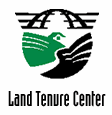Capital on the Move: The Changing Relation between Livestock and Labor in Mali, West Africa. In dryland areas of Africa, livestock play important economic roles as commodities, wealth stores, producers of products, and agents of environmental change. Conventional depictions of livestock economies in this region have focused (in support or against) on the need for greater engagement of livestock producers with markets supplying meat to urban areas. This paper argues this singular focus has led analysts to ignore two important aspects of livestock economies: livestock as a preferred store of wealth across a wide range of social groups and the need for specialized labor to manage these livestock across open pastures to maintain their productive capacity and limit their negative environmental impacts. In the West African Sahel, the capital-like nature of livestock wealth has become more clear with a growing fraction of the region’s livestock owned by investors with little connection to livestock husbandry. Livestock investments are maintained on a day-to-day basis by hired herders who facilitate access to ephemeral pastures and water. A particular concern is the changing geographies of livestock ownership and the herding labor in relationship to regional pastures (to economic and environmental ends). This relationship will be explored using the case study of the Maasina region of central Mali – a historically important livestock region, which is now undergoing significant labor emigration. Building from a long-term ethnographic engagement with local livestock owners and herders, the results of ownership surveys of livestock herds across a 14- year period and interviews of urban-based emigrants from the study area about investment decisions will be used to analyze the changing geographies of livestock investment and herding labor in the Maasina.
Deforestation vs. Poverty at Kibale National Park, Uganda: A Ten-Year Perspective
Incentive-Compatible Institutional Design: Who's in Charge Here?
Abstract - The confluence of new understandings of dryland ecology and common property resource management has arguably led to a “new pastoral development paradigm” -- a paradigm that incorporates a widespread acceptance of the ecological and economic importance of livestock mobility within the context of devolving greater rangeland management authority to local groups. Despite over a decade of interest and attention generated by this new paradigm, little progress has been achieved on the ground. A major premise of this paper is that this impasse results from persistent conceptual difficulties surrounding the relationship between livestock mobility, nonequilibrium ecology, and common property institutions. These difficulties are best resolved through work grounded in the social and ecological realities of particular regions. The promise of such engagements is illustrated through case material from the annual grasslands of Sahelian region of West Africa. The policy implications resulting from a reconceptualization of the relationship between property and dryland ecology are presented. Final version printed in Society & Natural Resources: An International Journal,Volume 24, Issue 5, 2011.
Agenda for U.Wisc Land Tenure Center's April 2008 Forum on 'Designing "Pro-Poor" Rewards for Ecosystem Services.'
Transcript of speakers presentations at Land Tenure Center's 2008 Spring Forum, "Designing 'Pro-Poor' Rewards for Ecosystem Services"
Designing Pro-poor Rewards for Ecosystem Services: Lessons from the United States?
Tenure Brief #9. Case studies from Ecuador and Indonesia highlight key land tenure issues to be mindful of when planning programs that offer payments or other rewards for provision of ecosystem services.
Strategic Trade-Offs for Wildlife Eco-Labels
En un intento por ayudar a proteger el ambiente y estimular el desarrollo económico, los programas que otorgan incentivos a cambio de servicios ambientales a ofrecen ventajas teóricas sobre otros mecanismos usados en el pasado. Sin embargo, estos programas confrontan varios desafíos, incluyendo el determinar quién debe ser compensado y cómo se deben estructurar los incentivos cuado los servicios ambientales son propiedad comunal o del estado. Estudios de caso en Ecuador e Indonesia resaltan la necesidad de tomar en consideración los conflictos sobre tenencia de la tierra durante la planificación de programas que ofrecen incentivos a cambio de servicios del ecosistema













